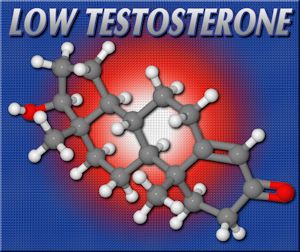Video Link: https://vimeo.com/290607621
Video Download: Click Here To Download Video
Video Stream: Click Here To Stream Video
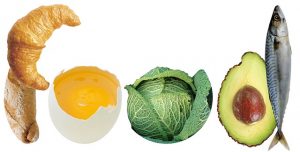
The human body is a beautiful machine that requires a lot of ingredients to function properly and keep you feeling happy and healthy.
This article is about the three macronutrients that the body needs to survive: Proteins, Carbohydrates, and Fats. Each serves a specific need for your body, and each has a life-sustaining role to play.
What Are Proteins?
Proteins are organic compounds that are comprised of amino acids. To date, there are twenty known amino acids that the body utilizes, eleven of which are made naturally by the human body.
This means that nine others must be consumed in your diet. These amino acids are known as Essential Amino Acids.
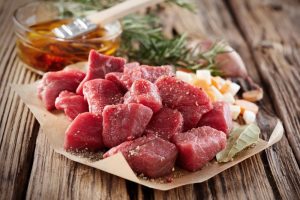 Why Do We Need Protein?
Why Do We Need Protein?
Every one of our cells uses protein, and protein is necessary for the diet to fix what's broken and to help build and rebuild tissues.
For example, after you work out, your body uses protein from your food to patch up and reinforce your muscle tissue, which is what heals you and makes you stronger.
Positive Nitrogen Balance is an important concept to consider when thinking about protein. This just means that you are eating enough protein frequently enough to meet the needs of your body.
It is recommended to eat some form of protein, whether in meal or snack form, every three or four hours to keep your body concerned with building and maintaining muscle (an anabolic state) rather than breaking it down (catabolic state).
You should always make sure you get enough protein in your diet, because, if you don't get enough protein in your diet, your body will start to break down your muscle proteins to service your body's overall protein needs.
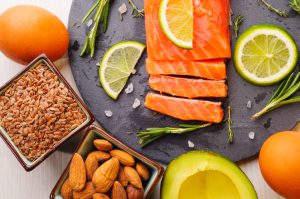 How Much Protein Do I Need?
How Much Protein Do I Need?
To enhance muscle mass and maintain or increase strength, you should be eating an average of 10-15 grams of protein for every ten pounds that you weigh.
If you are interested in boosting muscle mass or are looking for a vegetarian way to ensure you are getting proper protein, protein shakes are an excellent option.
Foods that are Considered a Healthy Source of Protein
- Low-Fat Dairy
- Fish
- Turkey
- Chicken
- Lean Beef
- Eggs
What Are Carbohydrates?
Carbohydrates are fibers, starches, and sugars that are found in milk, vegetables, grains, and fruits. The body needs carbohydrates because they are the macronutrient that provides the most accessible and most abundant source of energy for the body.
How Much of My Diet Should Consist of Carbs?
Carbs are essential, and you need them to maintain energy levels and provide your body with the fuel that it needs to function. The problem is that in American society, people just eat too many carbs.
Carbs should consist of around 40-45% of your daily calories, whereas proteins and fats should make up the other 55-60%.
 Complex Carbs vs. Simple Carbs
Complex Carbs vs. Simple Carbs
There are two forms of carbs, complex carbohydrates, and simple carbohydrates.
The body is evolutionarily designed to process complex carbs into usable energy.
The main problem with carbs in America is that we eat too many simple carbs and not enough complex carbs.
Processed grains and sugars are too easy for the body to break down, causing blood sugar spikes which are bad for the digestive and cardiovascular system, and can lead to Type-2 Diabetes.
The vastly increased consumption of processed carbohydrates over the last fifty years is the leading cause of the current diabetes epidemic.
Carbs and Body Fat
When it comes to overeating, Carbohydrates pose quite a threat. Simple carbs are absorbed quickly and aren't very filling. on means that it takes more food to feel full.
On the other hand, your body has specific energy needs based on your Basal Metabolic Rate and activity level. When carbs aren't immediately used as energy, they are converted into body fat, the body's energy storage system.
 How Many Carbohydrates Should I Eat?
How Many Carbohydrates Should I Eat?
The number of carbohydrates that you need depends on your current body fat and your workout goals.
If you are overweight, you should only eat around 15 grams of carbs for every ten pounds of body weight.
If you have healthy body weight and you are looking to build muscle. 20-30 grams per pound is acceptable, as long as your workouts utilize your carbohydrates effectively.
Simple carbohydrates should be consumed sparingly, and the majority of your carbohydrate intake should come from complex carbs unless you are engaging in an active workout routine.
When working out, simple carbohydrates can be beneficial before or after your workout, to aid in muscle-building and to maintain energy.
Healthy Sources of Carbohydrates
- Oranges
- Apples
- Pears
- Bananas
- Sweet Potatoes
- Brown Rice
- Oatmeal
- Whole grains
 Fats -- Hormone Synthesis and Energy Storage
Fats -- Hormone Synthesis and Energy Storage
Fats are the body's primary source of backup energy.
When the body doesn't have enough carbohydrates available to meet the energy needs of the body, it begins to convert fat stores into glucose, which is how we lose weight.
The body does not directly turn eaten fats into body fat, however. Carbohydrates are much more easily converted into fat.
There are three kinds of fat: Monounsaturated Fat, Polyunsaturated Fat, and Saturated Fat
Monounsaturated Fat is the best kind of fat for maintaining healthy cholesterol levels, and for individuals that need to get their LDL Cholesterol Levels under control.
There are two types of Cholesterol — HDL Cholesterol (Good Cholesterol) and LDL Cholesterol (Bad Cholesterol). Monounsaturated fats have a neutral effect on HDL Cholesterol Levels while reducing LDL Cholesterol Levels.
Polyunsaturated Fat is good for patients that have total cholesterol levels which are too high (it is possible to have too much HDL Cholesterol, but this is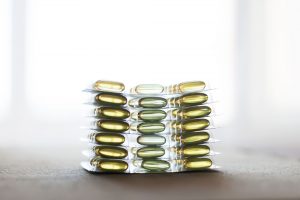 more uncommon). For most individuals, Polyunsaturated Fat can be beneficial, but the consumption of foods high in Polyunsaturated Fat, such as sunflower oils, soybean oils, corn oils, and fish oils should be controlled and limited.
more uncommon). For most individuals, Polyunsaturated Fat can be beneficial, but the consumption of foods high in Polyunsaturated Fat, such as sunflower oils, soybean oils, corn oils, and fish oils should be controlled and limited.
Fish oils are the best source of Polyunsaturated Fats because they are a quality source of Omega-Three Fatty Acids.
Saturated Fat is found mostly in dairy and meat. Some familiar sources of Saturated Fat are ham, pork, lamb, veal, beef, cheese, and whole milk. For vegans, palm kernel oil and coconut oil can provide Saturated Fat, among other plant fats.
Saturated Fat is 100% necessary for your body to produce hormones, among the most important of which is Testosterone. If you kicked fat out of your diet completely, your Hormone Levels would become depleted, and your vitality and physiological function would diminish dramatically as a result.
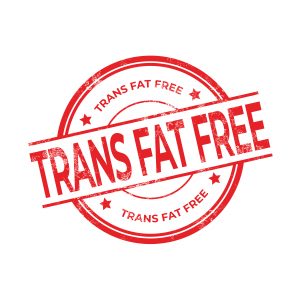 Trans Fats -- The Fats to Avoid
Trans Fats -- The Fats to Avoid
Not all fats are beneficial to the human body in any way. The most dangerous form of fat that is commonly available is Trans Fat.
Trans Fat became a common ingredient in Low-Fat foods during the eighties and nineties, as a response to the widespread, yet false, belief that dietary fat was a leading cause of obesity.
It would not be until the mid-to-late 90s that sugar would be recognized as the primary culprit of obesity.
Trans Fats are artificial fats created from a chemical hardening process known as hydrogenation.
Hydrogenation converts liquid vegetable oils into shortening and margarine. Trans Fats have proven to be highly dangerous for the heart and cardiovascular system when eaten regularly.
Contact Us Today For A Free Consultation

- Testosterone for Women [Last Updated On: December 1st, 2023] [Originally Added On: December 29th, 2013]
- Testosterone Androgen [Last Updated On: December 11th, 2023] [Originally Added On: December 29th, 2013]
- Testosterone and Body Building [Last Updated On: December 14th, 2023] [Originally Added On: December 30th, 2013]
- Testosterone Levels [Last Updated On: December 6th, 2023] [Originally Added On: December 31st, 2013]
- Testosterone Gel, Cream, and the Testosterone Patch [Last Updated On: November 28th, 2023] [Originally Added On: December 31st, 2013]
- Buy Testosterone | Types of Testosterone Replacement Therapy Programs, Injections, Cream and Gel [Last Updated On: December 13th, 2023] [Originally Added On: December 31st, 2013]
- Buy Testosterone Injections Online, Testosterone Prescription for Low T, Testosterone Replacement Therapy [Last Updated On: October 16th, 2020] [Originally Added On: January 1st, 2014]
- Aging and Testosterone Replacement Therapy [Last Updated On: December 12th, 2023] [Originally Added On: January 3rd, 2014]
- What Causes Low Testosterone [Last Updated On: December 10th, 2023] [Originally Added On: January 7th, 2014]
- Hormone Levels in Men [Last Updated On: December 4th, 2023] [Originally Added On: January 12th, 2014]
- Hormone Level Testing [Last Updated On: November 29th, 2023] [Originally Added On: January 13th, 2014]
- Types of Testosterone Products and Delivery [Last Updated On: December 8th, 2023] [Originally Added On: January 22nd, 2014]
- Testosterone Therapy Helps Men with Low-T Ward Off Prostate Cancer [Last Updated On: May 29th, 2024] [Originally Added On: December 29th, 2019]
- The Importance of Dietary Fat for Testosterone Production [Last Updated On: July 8th, 2024] [Originally Added On: January 2nd, 2020]
- Testosterone Deficiency and Low-T at Epidemic Levels Among Men in the United States [Last Updated On: May 27th, 2024] [Originally Added On: May 17th, 2020]
- The Effects of Testosterone Therapy on Male Patients -- Who Should Use Testosterone? [Last Updated On: December 20th, 2023] [Originally Added On: June 16th, 2020]
- Does Ibuprofen Contribute to Low Testosterone? [Last Updated On: January 27th, 2024] [Originally Added On: June 20th, 2020]
- The Link Between Testosterone and Lower Rates of Autoimmune Diseases Among Men [Last Updated On: January 30th, 2024] [Originally Added On: June 21st, 2020]
- Weight Cycling and the Problem with Crash Dieting [Last Updated On: April 8th, 2024] [Originally Added On: July 30th, 2020]
- Reexamining Bio-Identical Testosterone Therapy [Last Updated On: June 18th, 2024] [Originally Added On: August 12th, 2020]
- Understanding how Muscle and Fat Impact Body Mass, Weight, and Health [Last Updated On: April 15th, 2024] [Originally Added On: August 25th, 2020]
- The Role of Nitric Oxide in Cancer Proliferation And Prevention [Last Updated On: May 3rd, 2024] [Originally Added On: August 26th, 2020]
- Understanding Heartburn in the 21st Century [Last Updated On: April 24th, 2024] [Originally Added On: August 28th, 2020]
- What is Erectile Dysfunction? [Last Updated On: April 20th, 2024] [Originally Added On: August 30th, 2020]
- Sermorelin Acetate Drug Information [Last Updated On: April 7th, 2024] [Originally Added On: August 31st, 2020]
- Exercise and Mental Health [Last Updated On: April 5th, 2024] [Originally Added On: September 1st, 2020]
- Low-T Treatment Before and After -- How Testosterone Therapy Improves Vitality [Last Updated On: April 9th, 2024] [Originally Added On: September 6th, 2020]
- Changes to LabCorp Guidelines for Low-T Diagnosis and How They Impact Your Treatment [Last Updated On: July 14th, 2024] [Originally Added On: September 22nd, 2020]
- The Effects of Testosterone on Asthma Prevalence Among Men and Women [Last Updated On: February 19th, 2024] [Originally Added On: October 6th, 2020]
- 7 Exercises to Elevate Testosterone Levels [Last Updated On: June 13th, 2024] [Originally Added On: October 10th, 2020]
- Vitamin A is Essential for Good Health - Are You Getting Enough ? [Last Updated On: April 16th, 2024] [Originally Added On: October 14th, 2020]
- Testosterone and Diet – How to Support Testosterone Levels with Healthy Eating [Last Updated On: June 7th, 2024] [Originally Added On: October 29th, 2020]
- The Significance of Telomeres in Stem Cell Treatments [Last Updated On: March 16th, 2024] [Originally Added On: November 27th, 2020]
- The Influence of Testosterone on Protective Mating Behaviors in Men [Last Updated On: January 25th, 2024] [Originally Added On: December 6th, 2020]
- The Role of Testosterone in Women's Health [Last Updated On: December 24th, 2023] [Originally Added On: December 7th, 2020]
- Testosterone Promotes Bone Health and Can Help Treat Osteoporosis [Last Updated On: February 15th, 2024] [Originally Added On: December 17th, 2020]
- The Relationship Between Testosterone and Cortisol [Last Updated On: April 2nd, 2024] [Originally Added On: December 19th, 2020]
- The Importance of Sex Hormone-Binding Globulin (SHBG) for Healthy Testosterone Levels [Last Updated On: March 9th, 2024] [Originally Added On: December 28th, 2020]
- 12 Health Issues That Can Kill Libido and Limit Sexual Performance [Last Updated On: May 23rd, 2024] [Originally Added On: January 3rd, 2021]
- 4 Foods to Boost Your Testosterone Levels [Last Updated On: February 7th, 2024] [Originally Added On: January 4th, 2021]
- Low Testosterone Symptoms [Last Updated On: December 31st, 2023] [Originally Added On: January 7th, 2021]
- Is Male Menopause Real? The Science of Andropause [Last Updated On: January 15th, 2024] [Originally Added On: January 11th, 2021]
- Relieve Fatigue and Increase Energy with Testosterone Replacement Therapy [Last Updated On: January 16th, 2024] [Originally Added On: January 16th, 2021]
- How to Administer a Testosterone Injection -- Low-T Injection Guide [Last Updated On: February 28th, 2024] [Originally Added On: January 17th, 2021]
- Testosterone Levels Associated with Serotonin Activity in the Brain [Last Updated On: March 26th, 2024] [Originally Added On: January 19th, 2021]
- Grumpy Old Man Syndrome – Causes and Treatments [Last Updated On: June 8th, 2024] [Originally Added On: January 22nd, 2021]
- The Effects of Beer on Testosterone Production and Gynecomastia [Last Updated On: March 21st, 2024] [Originally Added On: January 30th, 2021]
- Testosterone Frequently Asked Questions [Last Updated On: February 6th, 2024] [Originally Added On: February 26th, 2021]
- Testosterone Supplements: Vitamin and Amino Acid Pills Versus Real Testosterone [Last Updated On: November 21st, 2024] [Originally Added On: March 1st, 2021]
- Testosterone Side Effects, Risks, Dangers and Negative Effects [Last Updated On: November 7th, 2024] [Originally Added On: March 2nd, 2021]
- Testosterone for Men [Last Updated On: February 20th, 2024] [Originally Added On: April 13th, 2021]
- Testosterone Testing [Last Updated On: November 9th, 2024] [Originally Added On: May 7th, 2021]
- Hormone Replacement Therapy: Commonly Asked Questions [Last Updated On: February 20th, 2024] [Originally Added On: June 16th, 2023]
Word Count: 1210










